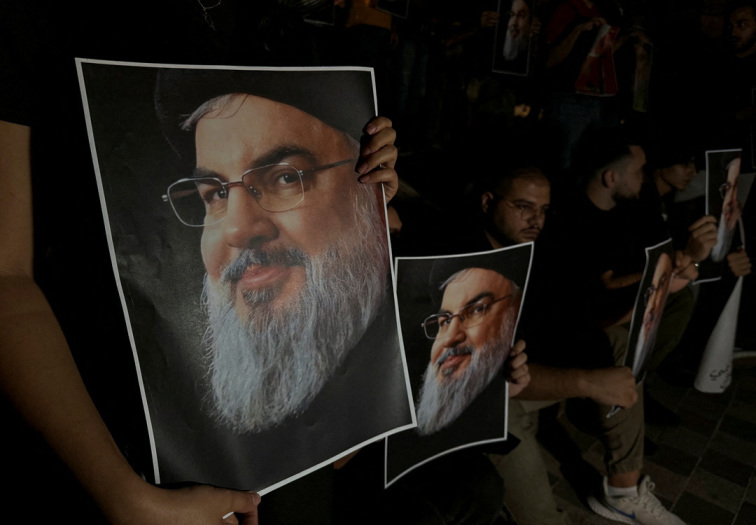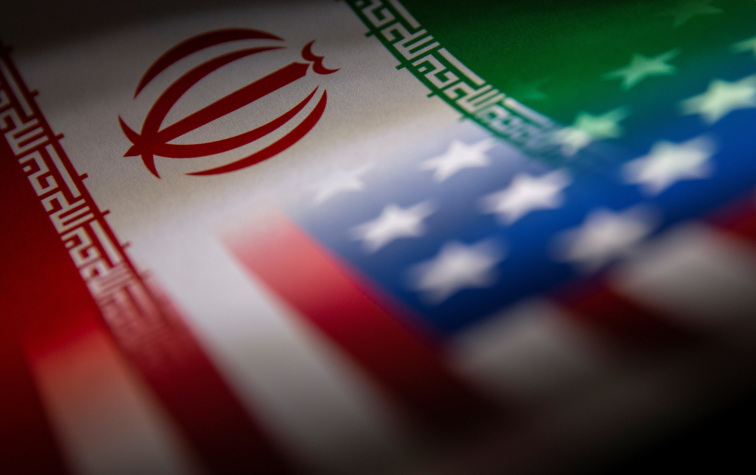Smoke rises over Beirut's southern suburbs after a strike, amid ongoing hostilities between Hezbollah and Israeli forces, as seen from Sin El Fil, Lebanon, October 2, 2024. (REUTERS/Amr Abdallah Dalsh)
JERUSALEM/BEIRUT (Reuters) -Iran said on Wednesday its missile attack on Israel, its biggest military assault on the country, was over, barring further provocation, while Israel and the United States promised to hit back as fears of a wider war intensified.
Israel will launch a "significant retaliation" within days that could target oil production facilities inside Iran and other strategic sites, U.S. news website Axios reported on Wednesday citing Israeli officials.
Despite calls for a ceasefire from the United Nations, the United States and the European Union, fighting between Israel and the Lebanon-based Hezbollah continued on Wednesday.
Israel renewed its bombardment of Beirut's southern suburbs, a stronghold of the Iran-backed group, with at least a dozen airstrikes against what it said were targets belonging to the group.
Large plumes of smoke were seen rising from parts of the suburbs. Israel issued new evacuation orders for the area, which has largely emptied after days of heavy strikes.
Hezbollah said it confronted Israeli forces infiltrating the Lebanese town of Adaisseh early on Wednesday and forced them to retreat.
Iran said Tuesday's assault on Israel was solely aimed at military facilities. Iran's state news agency said three Israeli military bases had been targeted.
Tehran said its assault was a response to Israeli killings of militant leaders and aggression in Lebanon against Hezbollah and in Gaza.
"Our action is concluded unless the Israeli regime decides to invite further retaliation. In that scenario, our response will be stronger and more powerful," Iranian Foreign Minister Abbas Araqchi said in a post on X early on Wednesday.
Israeli Prime Minister Benjamin Netanyahu has vowed to strike back. "Iran made a big mistake tonight - and it will pay for it," he said at the outset of an emergency political security cabinet meeting late on Tuesday, according to a statement.
Washington said it would work with longtime ally Israel to ensure Iran faced "severe consequences" for Tuesday's attack, which Israel said involved more than 180 ballistic missiles.
U.S. Secretary of Defense Lloyd Austin spoke to Israeli Defence Minister Yoav Gallant late on Tuesday and said Washington was "well-postured" to defend its interests in the Middle East, the Pentagon said in a statement.
"The minister and I expressed mutual appreciation for the coordinated defense of Israel against nearly 200 ballistic missiles launched by Iran and committed to remain in close contact," Austin said separately in a post on X.
U.S. Navy warships fired about a dozen interceptors against Iranian missiles headed toward Israel, the Pentagon said. Britain said its forces played a part "in attempts to prevent further escalation in the Middle East", without elaborating.
The Pentagon said Tuesday's airstrikes by Iran were about twice the size of April's assault by Iran on Israel.
'THE RESPONSE WILL BE PAINFUL'
Israel activated air defences against Iran's bombardment on Tuesday and most missiles were intercepted "by Israel and a defensive coalition led by the United States," Israeli Rear Admiral Daniel Hagari said in a video on X.
"Iran's attack is a severe and dangerous escalation," he added.
Iran's forces on Tuesday used hypersonic Fattah missiles for the first time, and 90% of its missiles successfully hit their targets in Israel, the Revolutionary Guards said.
In a statement on state media, the general staff of Iran's armed forces said any Israeli response would be met with "vast destruction" of the latter's infrastructure.
It also said it would target the regional assets of any Israeli ally that got involved.
Fears that Iran and the U.S. could be drawn into a regional war have risen with Israel's growing assault on Lebanon in the past two weeks, including the start of a ground operation there on Monday, while its conflict in the Gaza Strip is a year old.
U.S. President Joe Biden expressed full U.S. support for Israel and described Iran's attack as "ineffective".
Vice President Kamala Harris, the Democratic presidential candidate, backed Biden's stance and said the United States would not hesitate to defend its interests against Iran.
"We will act. Iran will soon feel the consequences of their actions. The response will be painful," Israel's U.N. Ambassador Danny Danon told reporters.
The White House similarly promised "severe consequences" for Iran and spokesman Jake Sullivan told a Washington briefing the United States would "work with Israel to make that the case".
Sullivan did not specify what those consequences might be.
In a statement, French President Emmanuel Macron said he strongly condemns Iran's new attacks on Israel, adding that in a sign of its commitment to Israel's security France mobilised its military resources in the Middle East on Wednesday.
The United Nations Security Council scheduled a meeting about the Middle East conflict for Wednesday, and the European Union called for an immediate ceasefire.
South Korean President Yoon Suk Yeol met with his national security and economic advisers on Wednesday over the Middle East conflict and called for a swift but measured response to any impact on the country's energy supply, his office said.
Nearly 1,900 people have been killed and more than 9,000 wounded in Lebanon in almost a year of cross-border fighting, most in the past two weeks, Lebanese government statistics showed on Tuesday.
(Reporting by James Mackenzie and Steven Scheer in Jerusalem; Maya Gebeily and Timour Azhari in Beirut; Parisa Hafezi in Istanbul; Phil Stewart, Jeff Mason and Idrees Ali in Washington; Michelle Nichols in New York; Adam Makary, Jaidaa Taha and Enas Alashray in Cairo; and Tala Ramadan, Jana Choukeir and Jack Kim in Seoul, Elwely Elwelly and Clauda Tanios in Dubai; Writing by Cynthia Osterman and Michael Georgy; Editing by Michael Perry and Clarence Fernandez)








News magazine bootstrap themes!
I like this themes, fast loading and look profesional
Thank you Carlos!
You're welcome!
Please support me with give positive rating!
Yes Sure!